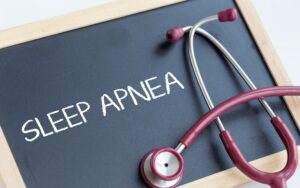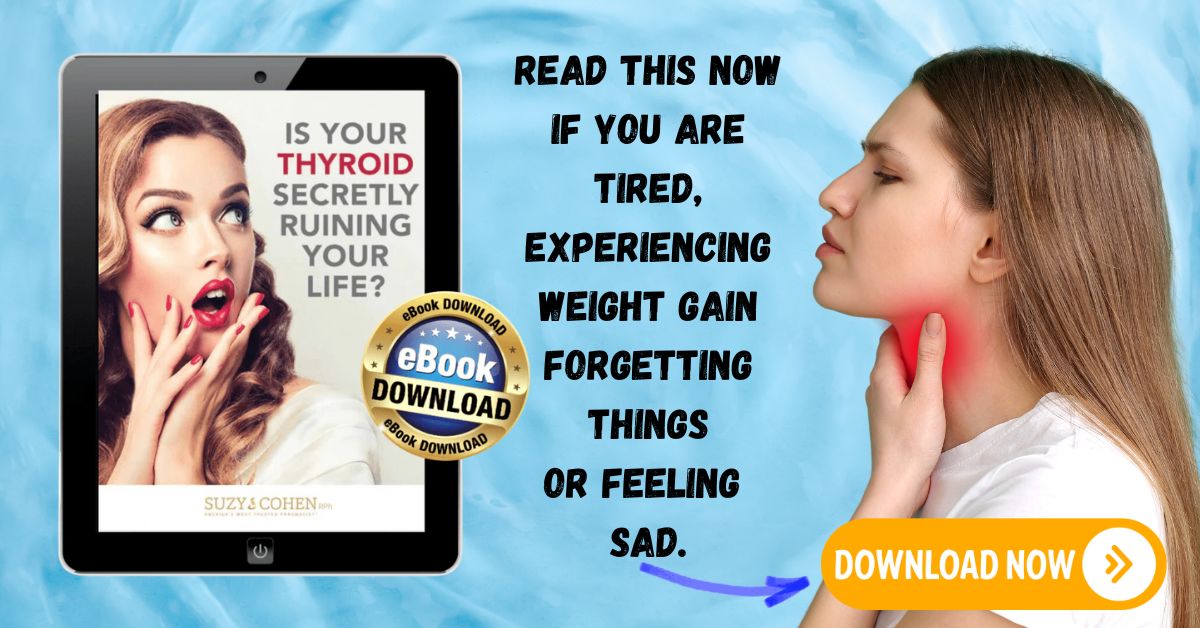What's On This Page?
ToggleSleep apnea causes fragmented sleep, leading to chronic sleep deprivation, which can take a toll on nearly every system in your body. Sleep isn’t just about rest, although we all feel better if we sleep through the night. Sleep is critical for cellular repair, hormone regulation, and brain function.
When your sleep is repeatedly interrupted, as it is with sleep apnea, the consequences can accumulate, affecting your health and quality of life in profound ways. If you pull an all-nighter or you drink a cappuccino near bedtime you might suffer one night of poor sleep. You may feel some of these immediate symptoms.
Immediate Symptoms of Sleep Deprivation:
Daytime Fatigue: Persistent tiredness and low energy, regardless of how long you’ve been in bed.
Impaired Concentration: Trouble focusing, making decisions, or remembering things.
Mood Changes: Increased irritability, anxiety, or depressive symptoms.
Weakened Immune Function: Greater susceptibility to colds, infections, and slower recovery times.
Long-Term Health Risks of Sleep Deprivation:
- Cardiovascular Disease:
- Increases blood pressure and raises the risk of heart attack or stroke.
- Metabolic Disorders:
- Can lead to insulin resistance, weight gain, and type 2 diabetes.
- Neurological Impacts:
- Greater risk of cognitive decline, Alzheimer’s disease, and other dementias.
- Mental Health Disorders:
- Chronic sleep deprivation is linked to anxiety and depression.
- Mortality Risk:
- Untreated sleep apnea and long-term sleep deprivation are associated with higher mortality rates.
Sleep is a cornerstone of health, and chronic deprivation is a warning sign your body cannot afford to ignore. Addressing sleep apnea is one of the most important steps you can take to restore balance and protect your long-term health.
Let’s Dive Into Sleep Apnea
Let’s talk about something we all know but don’t think about enough: sleep apnea. It’s more than just snoring—it’s a serious condition that affects millions of people and can silently wreak havoc on your health. If you’re waking up exhausted, sweaty, or even a little anxious, sleep apnea might be the hidden culprit.
There are three types of sleep apnea—obstructive sleep apnea (OSA), central sleep apnea (CSA), and complex sleep apnea (CompSA). They’re distinct, and each comes with its own causes and treatments. So, let’s break them down and explore the cutting-edge tools and resources available to help you sleep better and feel better.

The 3 Types of Sleep Apnea
1. Obstructive Sleep Apnea (OSA)
This is the most common type and the one most people associate with sleep apnea. It happens when the muscles in the back of your throat relax too much, blocking your airway. The result? Snoring, gasping for air, and poor-quality sleep.
- Symptoms: Loud snoring, morning headaches, and daytime fatigue.
- Treatment: CPAP (Continuous Positive Airway Pressure) machines are the gold standard and keep your airway open by gently delivering air. Newer options are quieter and more comfortable than ever before!
2. Central Sleep Apnea (CSA)
Now, CSA is a different animal altogether. Here, the brain forgets to tell your body to breathe. This type doesn’t always involve snoring, which is why it can go unnoticed for years.
- Causes:
- Neurological disorders like Parkinson’s disease can interfere with breathing signals.
- Brainstem damage from a stroke or tumor.
- Medications such as opioids or sedatives, which suppress the central nervous system.
- Symptoms: Waking up suddenly, often sweating or feeling hot, without realizing you’ve stopped breathing.
3. Complex Sleep Apnea (CompSA)
This is a tricky combination of both OSA and CSA. It’s often discovered when someone starts CPAP therapy for OSA, only to realize they still have apnea events that are CSA-related.
- Treatment: Advanced machines like ASV (Adaptive Servo-Ventilation) are specifically designed for these mixed cases.
Why Home-Based Sleep Testing is a Game-Changer
Gone are the days of spending the night in a sterile sleep clinic hooked up to a web of wires. With at-home testing options like Lofta or Sleep Doctor, you can figure out what’s going on without leaving your own bed. This is such a relief for people who want natural sleep patterns during testing.
- How It Works: After a telemedicine consultation, a device is sent to your home. It measures everything from oxygen levels to breathing patterns.
- The Benefits:
- No travel or overnight stays in an unfamiliar place.
- Faster diagnosis and personalized treatment plans.
CPAP vs. ASV: What’s the Difference?
Many of my patients ask, “Do I really need a machine to breathe at night?” If you have OSA, a CPAP machine is the classic choice and works by keeping your airway open with a steady stream of air. But if you have CSA or CompSA, you may need an ASV machine, which dynamically adjusts air pressure based on your breathing patterns.
The Differences Between Central and Obstructive Sleep Apnea
The key difference between Central Sleep Apnea (CSA) and Obstructive Sleep Apnea (OSA) lies in what causes the breathing disruptions. With OSA, the airway becomes physically blocked—think of the throat muscles relaxing too much—which often results in loud snoring, gasping, or choking sounds. In contrast, CSA doesn’t involve a physical blockage at all. Instead, the brain temporarily “forgets” to signal the body to breathe, so there’s little to no snoring. Often, the only clues are subtle, like pauses in breathing noticed by a bed partner or waking up suddenly feeling sweaty or anxious.
Diagnosing CSA can be tricky, as not all sleep tests check for it. Companies like Lofta and Sleep Doctor specialize in comprehensive at-home sleep studies that measure both breathing effort and brain-driven interruptions. It’s worth asking if the test you’re considering specifically evaluates for CSA, as many generic tests focus only on OSA.
As for health wearables like Apple Watch or Samsung Watch, these can track general metrics like oxygen saturation, heart rate, and sleep stages, which might hint at sleep apnea. However, they cannot definitively diagnose either type of sleep apnea because they lack the detailed data collection of clinical sleep tests. If your wearable flags potential irregularities (like frequent low oxygen levels or irregular breathing), it’s a good idea to follow up with a certified sleep study for a formal diagnosis.
When Medications Play a Role in Sleep Apnea
As a pharmacist, I often see medications playing a significant role in either causing or worsening Central Sleep Apnea (CSA) and sometimes even Obstructive Sleep Apnea (OSA). Certain drugs can suppress the brain’s respiratory drive, interfere with muscle tone, or exacerbate conditions like hypoventilation. The good news? There are alternative medications, supplements, and even herbs that may help alleviate apnea-related symptoms or improve sleep quality. Let’s dive into the culprits and potential solutions.
Medications That Can Worsen or Cause Sleep Apnea
- Opioids:
- Why: These suppress the central nervous system (CNS), directly reducing the brain’s ability to signal for breathing.
- Examples: Morphine, oxycodone, hydrocodone, fentanyl.
- Alternatives: Non-opioid pain management strategies like acetaminophen, NSAIDs (ie ibuprofen), or adjunct therapies such as lidocaine patches or low-dose naltrexone (LDN).
- Sedatives and Hypnotics:
- Why: Benzodiazepines and non-benzodiazepine hypnotics relax the muscles of the upper airway and suppress the CNS, exacerbating apnea episodes.
- Examples: Diazepam (Valium), lorazepam (Ativan), zolpidem (Ambien), eszopiclone (Lunesta).
- Alternatives: Melatonin, ramelteon (Rozerem), or herbal options like valerian root or passionflower.
- Alcohol:
- Why: Although not a prescription drug, alcohol is a significant cause of apnea exacerbation because it relaxes the throat muscles and suppresses breathing.
- Recommendation: Avoid alcohol, especially close to bedtime.
- Muscle Relaxants:
- Why: Drugs like baclofen or cyclobenzaprine reduce muscle tone, potentially worsening obstructive apnea by causing upper airway collapse.
- Alternatives: Consider topical analgesics or physical therapy for musculoskeletal pain.
- Antipsychotics:
- Why: Certain atypical antipsychotics can contribute to weight gain and respiratory depression, indirectly worsening apnea.
- Examples: Quetiapine (Seroquel), olanzapine (Zyprexa).
- Alternatives: Non-sedating antipsychotics like aripiprazole (Abilify) or lifestyle interventions for sleep disturbances.
- Beta-Blockers:
- Why: These drugs can cause night awakenings causing daytime fatigue, indirectly causing both night and day issues.
- Examples: Metoprolol, propranolol and others.
- Alternatives: Calcium channel blockers (ie amlodipine) or ACE inhibitors (ie lisinopril) for managing hypertension.
Supplements and Herbs That May Worsen Sleep Apnea
- High Doses of Magnesium:
- Why: While magnesium in normal healthy doses is generally beneficial for relaxation, leg cramps, and sleep, some people overdo the magnesium. When taken in excessive doses can overly relax airway muscles and worsen OSA.
- Recommendation: Stick to moderate doses (200–400 mg) and monitor for symptoms.
- Valerian Root:
- Why: As a sedative herb, valerian can relax the upper airway muscles, potentially exacerbating OSA.
- Recommendation: Use cautiously if OSA is diagnosed.
Medications and Supplements That May Help
- Acetazolamide:
- How it Helps: A carbonic anhydrase inhibitor that increases blood acidity, stimulating the brain’s respiratory centers. Particularly effective for CSA caused by high-altitude.
- Dosage: 250–500 mg at bedtime (under medical supervision it requires a prescription).
- Theophylline:
- Melatonin:
- How it Helps: Regulates the sleep-wake cycle and may improve overall sleep quality.
- Dosage: 0.5 – 3 mg, taken 1–2 hours before bedtime.
- L-Theanine:
- How it Helps: Promotes relaxation without sedating muscles, making it a safer alternative to sedatives.
- Dosage: 100–200 mg at bedtime.
- Vitamin D:
- How it Helps: Low levels of vitamin D are linked to poor sleep and apnea severity. Supplementation may reduce inflammation and improve muscle tone.
- Dosage: 2,000–4,000 IU daily, depending on levels.
- Omega-3 Fatty Acids:
- How it Helps: Reduces inflammation and may improve cardiovascular health, indirectly benefiting apnea symptoms.
- Dosage: 1–3 grams daily of EPA/DHA.
- Methylfolate (5-MTHF):
- How it Helps: Supports methylation pathways, which are critical for neurotransmitter metabolism and respiratory regulation.
- Dosage: 400–1,000 mcg daily.
- Ashwagandha:
- How it Helps: Adaptogenic herb that can lower cortisol and support restorative sleep.
- Dosage: 300–600 mg daily.
- Magnesium (in moderate doses):
- How it Helps: Supports relaxation and reduces nighttime awakenings, but doses above 400 mg may worsen apnea. See above.
- Dosage: 200–300 mg as CHELATED MAGNESIUM.
Pharmacist’s Takeaway
If you suspect that medications or supplements are affecting your sleep apnea, don’t stop them abruptly. Instead, discuss with your doctor or pharmacist about safer alternatives or possible dosage adjustments. Some medications can exacerbate apnea, while others might hold the key to improving it. Sleep apnea isn’t just a bedtime issue—it’s a full-body health concern, and addressing it holistically can change your life.
Do you Take Progesterone as Part of your HRT – Read This
Progesterone pills that have been prescribed to some of you for HRT (hormone replacement therapy) may help sleep apnea, particularly for postmenopausal women or those of you with CSA and hypoventilation. It generally does not fit in the list of medications that worsen apnea, unless combined with sedating agents or used inappropriately.
- Beneficial Effects:
- Respiratory Stimulant: Progesterone is a natural respiratory stimulant, enhancing your brain’s drive to breathe. This is particularly helpful in some cases of CSA, where the brain may temporarily “forget” to send signals to breathe.
- Upper Airway Tone: Progesterone may improve muscle tone in the upper airway, potentially reducing the likelihood of airway collapse in OSA.
- Hormonal Regulation: In postmenopausal women, declining progesterone levels can increase the risk of OSA. Supplementation may counteract this effect.
- When Progesterone May Worsen Symptoms:
- If progesterone pills lead to excessive relaxation or sedation (especially if combined with other sedatives or taken in high doses), they could potentially exacerbate obstructive airway issues in sensitive individuals. However, this is rare.
Dosage and Use
- Typical doses for sleep and respiratory support range from 100–200 mg of oral micronized progesterone at bedtime. This refers to compounded progesterone oral pills, or the peanut-derived Prometrium® (both of these require prescription).
- For optimal benefits, discuss with a hormone specialist, especially if you are already predisposed to underlying apnea or if you are postmenopausal.
Why Diagnosing Sleep Apnea is Essential
Untreated sleep apnea doesn’t just leave you groggy—it can lead to serious health problems like heart disease, diabetes, and stroke. If you’re waking up feeling hot, sweaty, or tired despite a full night’s sleep, don’t ignore it. You owe it to yourself to get evaluated.
My Recommendations
As someone who deeply cares about helping you take control of your health, I recommend:
-
- Consider At-Home Testing: Lofta and Sleep Doctor are fantastic options to get started. They’re convenient, thorough, and can deliver fast results.
- Review Your Medications: If you’re on sedatives, opioids, or even over-the-counter sleep aids, these could be contributing to your symptoms.
- Explore Treatment Options: CPAP and ASV machines have come a long way—they’re quieter and more user-friendly than you might think.
- Check your Medication Regimen: Use the lists I’ve provided above to see if you take a medication that either exacerbates your apnea, or helps it.
Final Thoughts
Sleep apnea is a common yet often overlooked condition that can have profound effects on your physical, emotional, and cognitive health. The good news is that it’s highly manageable with the right tools and knowledge. Whether you’re dealing with obstructive sleep apnea (OSA), central sleep apnea (CSA), or complex sleep apnea (CompSA), understanding your condition and taking proactive steps can make all the difference.
From exploring at-home sleep tests with reliable companies to choosing the most suitable therapy—whether it’s a CPAP machine, ASV therapy, or even lifestyle adjustments—there are more options than ever before to tailor treatment to your unique needs. If medications or supplements play a role in your sleep issues, reviewing these with your healthcare provider or pharmacist can provide further insights and solutions.
Sleep apnea is not just about snoring or restless nights—it’s about long-term health. Left untreated, it can contribute to conditions like heart disease, diabetes, stroke, and even cognitive decline. But with the right diagnosis and treatment plan, you can take control, protect your health, and restore your energy and quality of life.
For more information on sleep apnea, its diagnosis, and treatment options, visit SleepApnea.org, a trusted resource dedicated to education and research about this condition. Remember, sweet dreams don’t just happen—they’re made possible by taking charge of your sleep health

Suzy Cohen, has been a licensed pharmacist for over 30 years and believes the best approach to chronic illness is a combination of natural medicine and conventional. She founded her own dietary supplement company specializing in custom-formulas, some of which have patents. With a special focus on functional medicine, thyroid health and drug nutrient depletion, Suzy is the author of several related books including Thyroid Healthy, Drug Muggers, Diabetes Without Drugs, and a nationally syndicated column.




